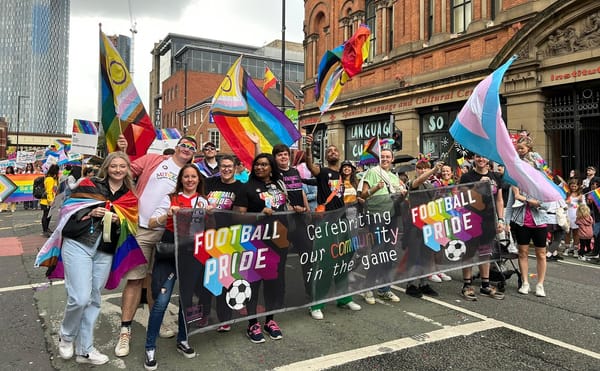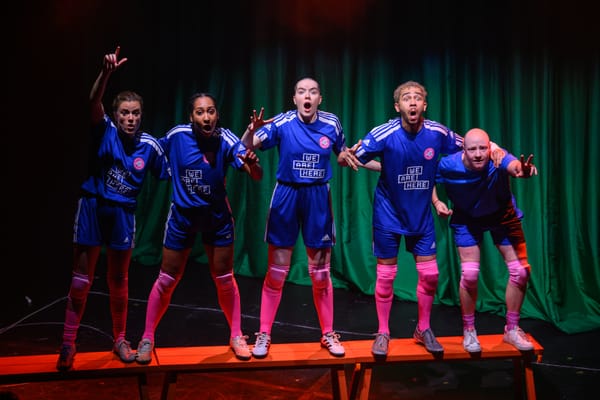Balancing quality and equality: leading the best LGBTQ+ football team in Europe
After years without a trophy Will's club, the London Falcons, won the EuroGames and a weight was lifted.
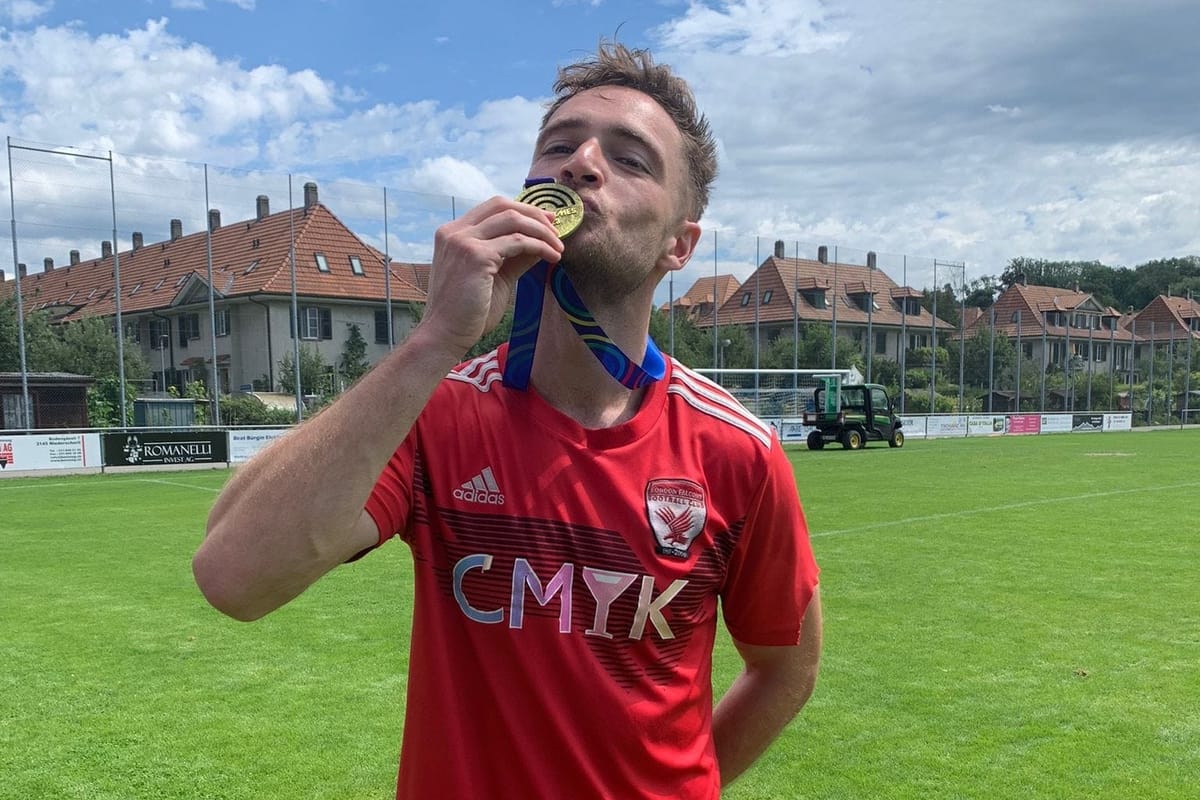
Does being an inclusive football club mean you have to lower your standards? That’s something that Will Oster, chair of the London Falcons, rejects. Here, he explains why.
“Inclusion is important. Just being here as representatives of our community alongside so many others is special. However, let’s be honest, actually winning this thing would be something else.”
That’s what one of my teammates, the longest serving of the current London Falcons crop, said as we approached our final at the EuroGames in Bern a few months ago.
Being the chair of the London Falcons, an LGBTQ+ football team based in south London, is a position that has brought me some of the proudest moments in my life.
I fell out of love with football in my late teens and early twenties, tired of casual and outright homophobia on the terraces, in the pub or in the changing room. My coming out coincided with discovering a team that helped me fall in love with the sport all over again. No moment has brought me more pride than our victory at the 2023 EuroGames in July. We won Europe’s biggest LGBTQ+ sports event.
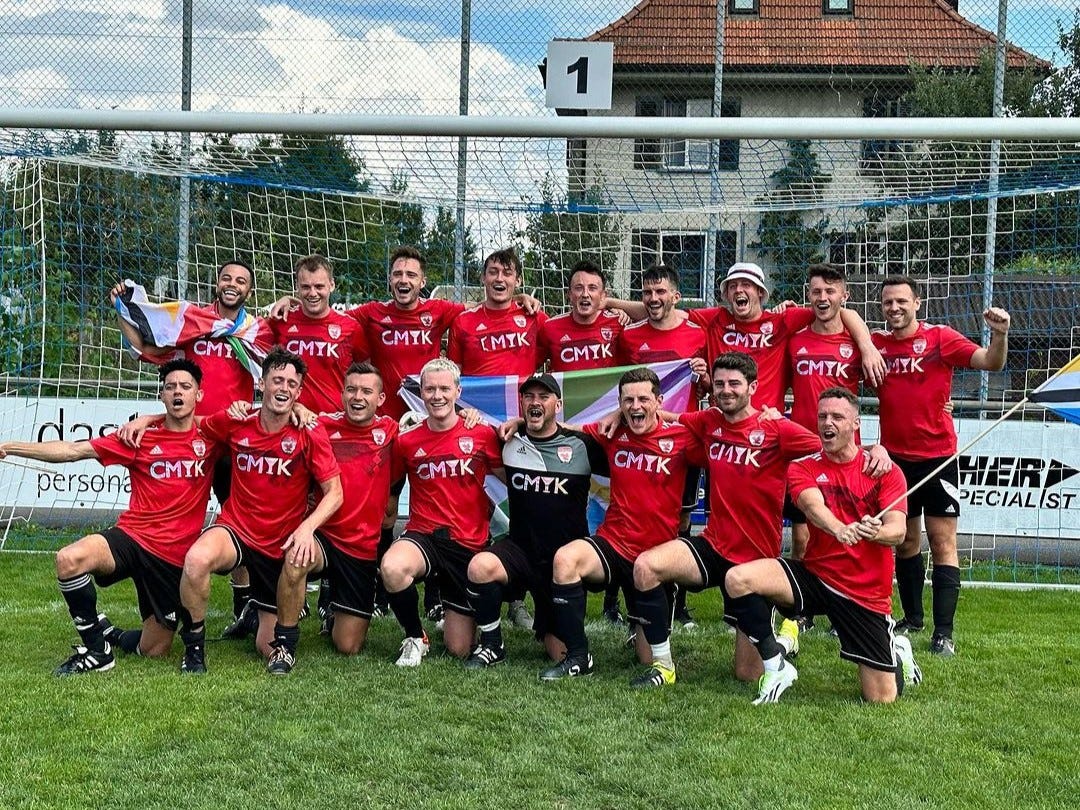
Of course, an event like the EuroGames is about inclusion and the promotion of the belief that all are equal to compete in the sports that they love. Held every year in a different European city, these games bring together thousands of athletes to unite in celebrating who they are and the sports that they play.
But the London Falcons are also fundamentally a sports team. While we unquestionably support the idea of inclusive sport, we want to win every game that we play.
We’re also proud to be supported by some of our community’s allies, who have been committed members of the club for many years and stood alongside us in our mission for inclusive sport.
As a club, we have had lots of discussions over the years about the balance that a club like ours should strike between inclusivity and competitiveness.
Yes, although all of us found the Falcons whilst looking for a safe space to play football – that was not the sole aim. We came to win football matches and at times this can feel slightly counterintuitive to the overall message of inclusive football for all.
We’re a one-squad club (something of a rarity in London’s inclusive football scene), so we set out to field our strongest squad for every match – taking into account the litany of injuries, double bookings, and lack of availability that plagues every amateur football team across the country. It can be a real test for us, but we want to show that as a club, we can compete at the highest level regardless of who we are or who we love.
This is why a win like this in Bern means so much. We had been here before. Four years ago, we had reached our first-ever European final when our threadbare squad came unstuck after six games in three days, baking in the heat of the scorching Roman sun. The curse of the one-squad model meant we had no second team to call on. As our 12 fit players battled against the 23-man deep team of our opponent (and their relentless use of rolling subs) the dream began to ebb away as quickly as our lactic acid levels ratcheted up.
A bronze medal followed last year in Nijmegen during another injury-plagued campaign. However, with a relatively clean bill of health, this year in Bern felt like a huge opportunity to go one better. Having swept the group stage with four wins and no goals conceded, we beat Village Manchester in the semi-finals to book a spot in the final.
Having spent four years at the club without a major trophy, I will admit that there had been moments where I thought we may not ever be able to compete at this high level. In all honesty, during these moments, I was able to take some degree of solace in the fact that I was playing for a club that stood for everything I believed in and created a safe space for so many to do what they loved the most. Genuinely, though, I still had a pang of regret that I had not yet managed to nab a trophy.
To win a highly competitive tournament, alongside my friends and in the name of inclusivity would be an indescribably proud moment if we were able, as a team, to finally get this over the line.
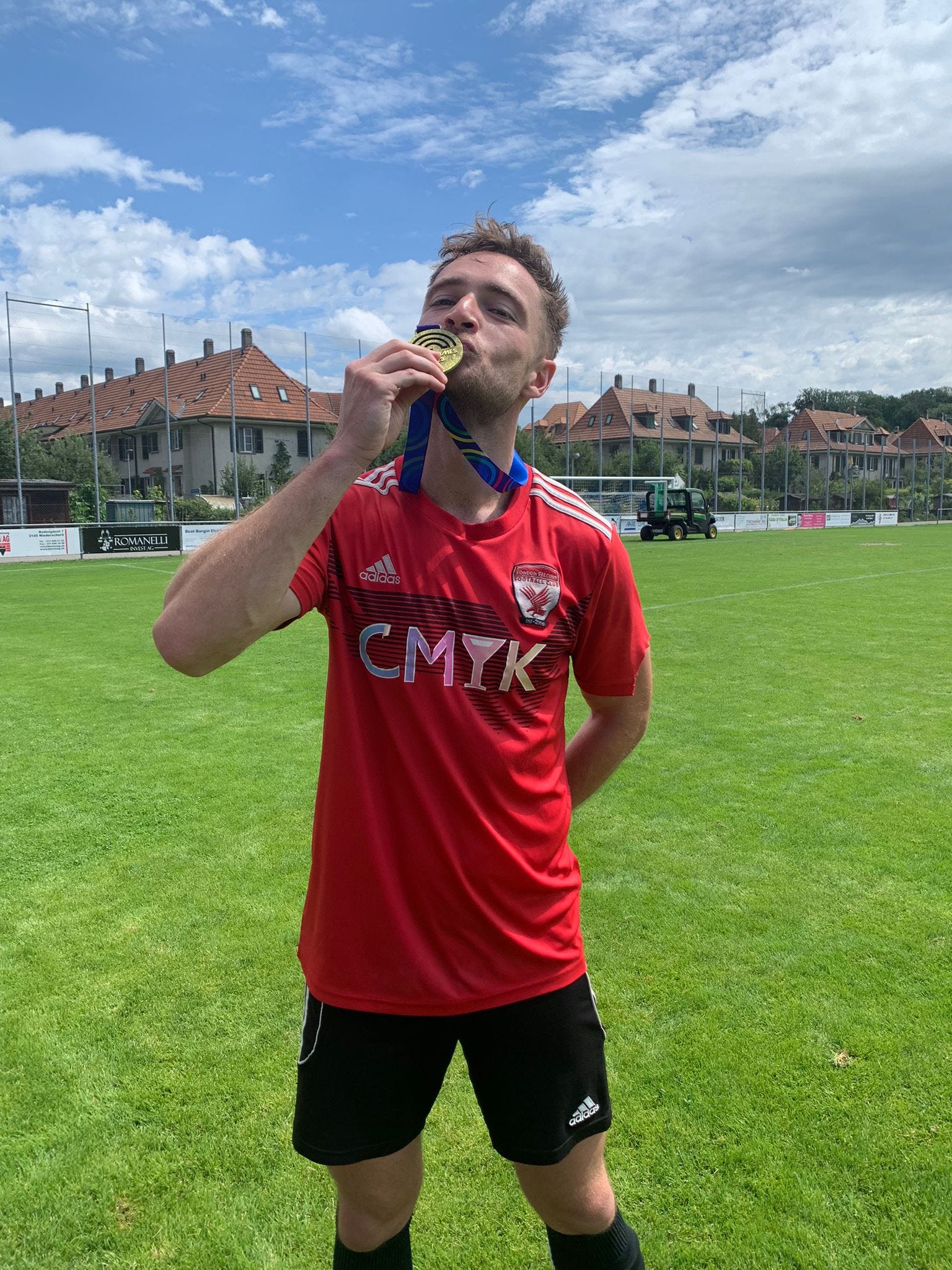
The Falcons badge has always meant so much to me – but it sure would mean even more if there was a gold medal swinging next to it (not quite the embroidered gold star some of my teammates have been asking for, admittedly).
Playing is stressful enough in an environment such as this. Six one-hour games in 48 hours mean that by the time you have reached a final, it really is a combination of goodwill, deep heat and pumping Dua Lipa on the speakers that keeps this creaking collection of bodies together.
For me personally, a last-minute change in circumstances meant I found myself stepping in as manager for the tournament, turning what for some could be seen as a football holiday into somewhat of a work trip. With the score at 1-1 in the final at half-time, all that I could say as manager was to remind the team of just how superb they had been to this point and how they were indeed on the cusp of making history for our small club in Southwest London. As the words left my mouth, I could feel myself getting emotional – although at this point, there was so much suncream in my eyes that you couldn’t have ever established what the cause of any tears was.
The final whistle blew. We won 2-1. We were “European champions” for the first time in our history. It was as if a huge weight had been lifted. We were no longer just here to make up the numbers at tournaments. We were genuine competitors and a team to challenge at the highest levels – both in inclusive settings like the EuroGames, and back at home where we compete in the local Wimbledon and District League.
So what does this all mean?
I guess a pertinent question to ask at this point would be ‘would you have been proud of yourself and the team had we lost?’
Undoubtedly the answer to that is yes.
There is lots to be said for playing at a club that you love but not necessarily where you win every (or indeed any) trophy going.
It is not always the winning that matters – especially when promoting a message of inclusivity in football.
But winning is a vindication of our club’s philosophy that our inclusivity should shape us but not exclusively define us.
Now, after the heat of the Swiss summer has dissipated, we have returned to our local league. We once again set out to show week in, week out, that we are an inclusive team that plays football because first and foremost – before any questions of identity – we love football.
However, the ability to say that we’re currently the best LGBTQ+ football club in Europe fills me with immense pride. It feels as if the club has now moved to a new level, and we are all incredibly excited to see where we can go next.
Adam here again. If you liked this piece, could you do me a favour? Could you share it with a friend? Send a message with the link to one friend and tell them why you think they’d like it. It’d be a great help. Thank you!

